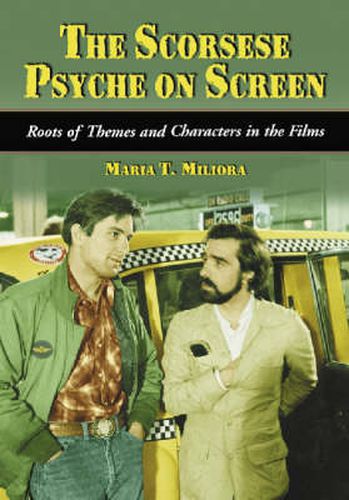Readings Newsletter
Become a Readings Member to make your shopping experience even easier.
Sign in or sign up for free!
You’re not far away from qualifying for FREE standard shipping within Australia
You’ve qualified for FREE standard shipping within Australia
The cart is loading…






This title is printed to order. This book may have been self-published. If so, we cannot guarantee the quality of the content. In the main most books will have gone through the editing process however some may not. We therefore suggest that you be aware of this before ordering this book. If in doubt check either the author or publisher’s details as we are unable to accept any returns unless they are faulty. Please contact us if you have any questions.
This study examines the life and work of acclaimed film director Martin Scorsese, showing that his films reflect his experiences growing up in a Sicilian-American-Catholic family in the tough neighborhood of New York’s Little Italy. The study links the personal Scorsese, his roots, and his ethical and religious attitudes. The work examines many films from Boxcar Bertha (1972) to Bringing out the Dead (1999), with special attention given to Gangs of New York (2002) as a vehicle for Scorsese’s return to his roots. The Last Temptation of Christ (1988) is analyzed as a template for the Scorsese opus. The study begins with a biography of Scorsese, and then describes his films from 1963 to 2002, providing plot summaries, themes, and characters. The body of the work analyzes films in terms of male sexuality, narcissism, violence, and the place of women in the director’s personal and cinematic world. In addition to showing how the themes of Scorsese’s films derive from his roots, the study offers psychological analyses of his focal characters. It provides a psychological basis for understanding the dialogue and actions of the characters in the context of their respective film stories. The
$9.00 standard shipping within Australia
FREE standard shipping within Australia for orders over $100.00
Express & International shipping calculated at checkout
This title is printed to order. This book may have been self-published. If so, we cannot guarantee the quality of the content. In the main most books will have gone through the editing process however some may not. We therefore suggest that you be aware of this before ordering this book. If in doubt check either the author or publisher’s details as we are unable to accept any returns unless they are faulty. Please contact us if you have any questions.
This study examines the life and work of acclaimed film director Martin Scorsese, showing that his films reflect his experiences growing up in a Sicilian-American-Catholic family in the tough neighborhood of New York’s Little Italy. The study links the personal Scorsese, his roots, and his ethical and religious attitudes. The work examines many films from Boxcar Bertha (1972) to Bringing out the Dead (1999), with special attention given to Gangs of New York (2002) as a vehicle for Scorsese’s return to his roots. The Last Temptation of Christ (1988) is analyzed as a template for the Scorsese opus. The study begins with a biography of Scorsese, and then describes his films from 1963 to 2002, providing plot summaries, themes, and characters. The body of the work analyzes films in terms of male sexuality, narcissism, violence, and the place of women in the director’s personal and cinematic world. In addition to showing how the themes of Scorsese’s films derive from his roots, the study offers psychological analyses of his focal characters. It provides a psychological basis for understanding the dialogue and actions of the characters in the context of their respective film stories. The